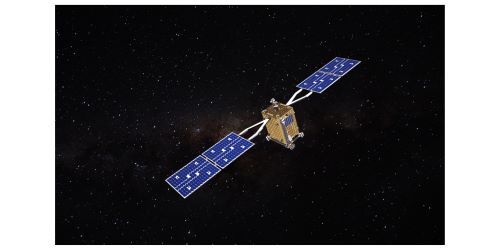CANON PARTNERS WITH RESEARCHERS TO RESTORE GLOBAL CORAL REEFS

Today, Canon Europe announces its partnership with the Coral Spawning Lab in Morden, London. A team of researchers have joined forces to study and better understand the life cycles of coral reefs, to equip communities across the world with the information and tools needed to enable them to regenerate coral ecosystems. This has resulted in the team producing the world’s first ever predictable broadcast coral spawning in a completely closed system.
Imaging equipment, including state-of-the-art cameras and lenses, supplied by Canon will be used to create a database of photographic activity that can be used by the researchers to monitor and optimise the coral spawning process. According to the United Nations, coral reefs are a vital natural resource that provide an estimated $2.7 trillion in services a year – including generating tourism revenue, supplying raw materials for life-saving medicines, and helping to ensure food security. Despite their immense value, coral reefs are under threat from the damaging effects of climate change, with warnings that reefs could decline by 70-90 per cent if temperatures rise above pre-industrial levels. This would have devastating consequences for our planet’s ecosystem.
Canon’s imaging tools will enable the researchers to track the progress of each new ‘plug’ of coral, document different embryological stages, track mortality rates, among other key markers of growth. Crucially, the team will be able to accurately document how the coral’s lifecycle plays a role in the restoration of reefs around the world. The research will also be open source, empowering local communities to leverage the insights and knowledge to ensure reefs survive for generations to come.
“As an organisation that is committed to protecting the environment, we are excited to work with the talented team of researchers at the Coral Spawning Lab. It is heartening to see our state-of-the-art imaging equipment being used to help in the restoration and resilience of coral reefs across the world, a species that is crucial in the maintenance of a healthy ecosystem. Indeed, it is a great example of how organisations can be actively involved in maintaining the health of global biodiversity,” said Peter Bragg, Sustainability and Government Affairs Director at Canon EMEA.
“At the lab we’re trying to replicate nature, but we’ve got so much more control. We are evaluating flow rates, feeding regimes, strength of lighting – what’s working, what’s not working. The Equipment supplied by Canon is what allows us to meticulously monitor the lifecycle of the coral, as well as helping us amplify our work to the world. We probably have a window of no more than eight years left to restore global coral reefs. If we don’t make a big impact by then, it is possibly too late”, said Dr Michael Sweet, Co-Founder of Coral Spawning Lab and Professor in Aquatic Biology at the University of Derby.
We are committed to working together to create a more sustainable world for the people and wildlife on the planet. Our partnership with the Coral Spawning Lab is an excellent opportunity to help protect global biodiversity and can be viewed as one of our ‘nature positive’ initiatives taking place across Canon Group.













